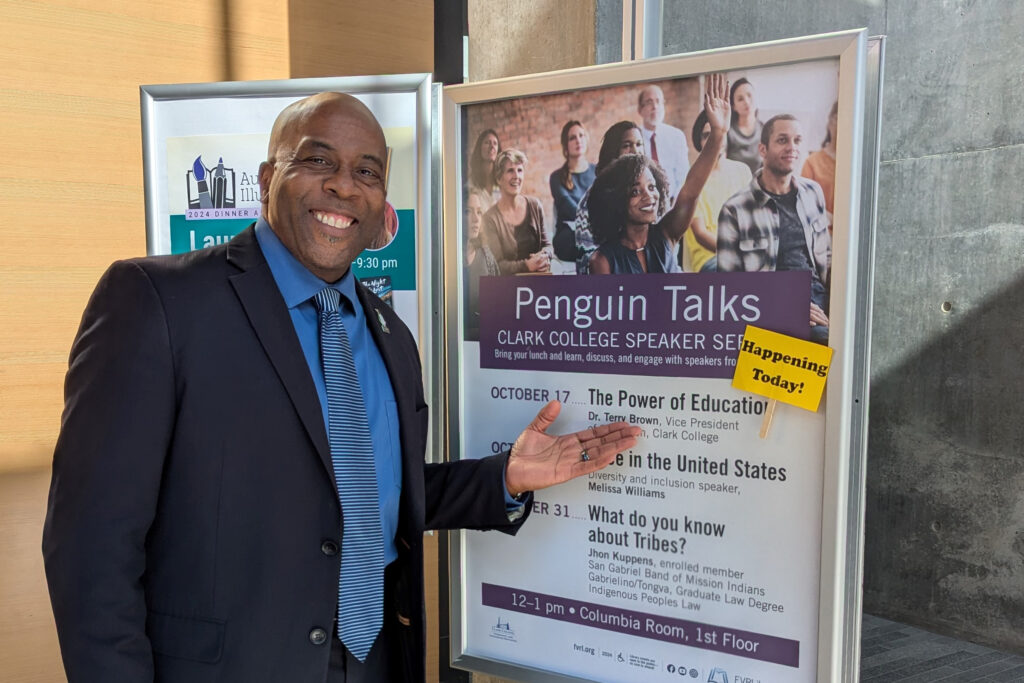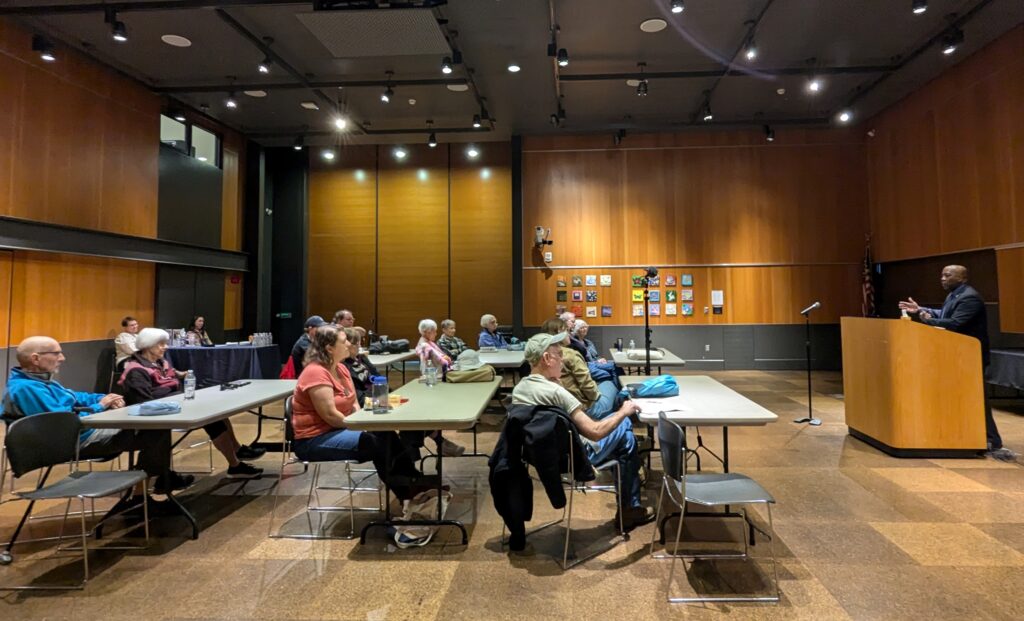Dr. Terry Brown kicks off Penguin Talks series

Vice President of Instruction Dr. Terry Brown kicked off the Penguin Talks series on October 17 at Vancouver Community Library.
Speaking on the theme “The Power of Education,” Dr. Brown shared stories about how education transformed his own family in only three generations. His grandparents and parents grew up in the segregated South where their opportunities were limited.
Dr. Brown’s grandparents did not graduate from high school. A generation later, his mother attended community college but did not graduate. Eventually, she returned to college and earned a bachelor’s degree. Her children took their education even further. Both Dr. Brown and his brother earned doctorate degrees.
For an hour, Dr. Brown spoke about how education transforms people, families, and communities. Here are some highlights.
The power of education
- “The power of education extends far beyond the individual being educated. It extends to our families, our communities, our nation.”
- “Education is a conduit for personal transformation. It provides a way for people to learn how to solve problems, to learn about the world and how to navigate it, to discover and develop their abilities and talents so that they can become who they are meant to be.”
- “Education is a catalyst for family and of community wellbeing. Education provides the means for people to expand their opportunities to care for their families. This impact can be intergenerational.”
- “Education is a cornerstone of economic vitality. An educated workforce dramatically raises the economic prospects of a family, a community, and a nation.”
- “Education is a call to civic engagement and services.”
Investing in diversity, equity, and inclusion
- “Attacks on diversity, equity, and inclusion say something. We are seeing diversity, equity, and inclusion being questioned, and being under attack. The antonyms of DEI are homogeneity, inequity, and exclusion.”
- “The power of education is limited only by our willingness to invest and engage with it. Disinvestment of our schools and colleges says something. Not providing support to people trying to learn says something.”
Investing in lifelong education
- “If we want a society filled with highly developed human beings, a nation and society rich materially and culturally, then we need to invest our resources into each other’s lifelong education.”
- “I believe in the power of education. Education is both our inheritance from those who came before us and our legacy to those who come after us. It’s our responsibility to preserve and protect it.”

About Penguin Talks
Clark College and Fort Vancouver Regional Libraries are partnering to present Penguin Talks, a lunchtime speaker series offered at noon on two more consecutive Thursdays, October 24 and 31 in the Columbia Room at Vancouver Community Library, 901 C Street, Vancouver. The free, public series features local experts sharing their knowledge about critical topics impacting our community. October 24: Red, White, and Brown: Race in the United States with Melissa Williams
Explore the formation of race in the United States and its lasting consequences. Learn how to define systemic racism and begin steps to mitigate its impacts.
Melissa Williams is the Policy Associate for Equity, Diversity, and Inclusion at the Washington State Board for Community and Technical Colleges. She has almost 20 years of experience working in administrative leadership positions in higher education, including 13 years at Clark College. She serves on the Alumni Board of Clark College Foundation. October 31: Native American, Indigenous or Indian? with Jhon Kuppens
Jhon Kuppens, enrolled member of the San Gabriel Band of Mission Indians Gabrielino/Tongva, will speak about American Indian tribal histories, sovereignty, federal trust responsibility, and rights. Kuppens will explore the impact of tribal politics, culture, law, jurisdiction, and values while examining the legacy of historical trauma.
Kuppens holds a Master of Legal Studies degree in Indigenous Peoples Law from the University of Oklahoma College of Law and a Bachelor of Arts degree in Social Science from Washington State University.
Photos: Clark College/Susan Parrish